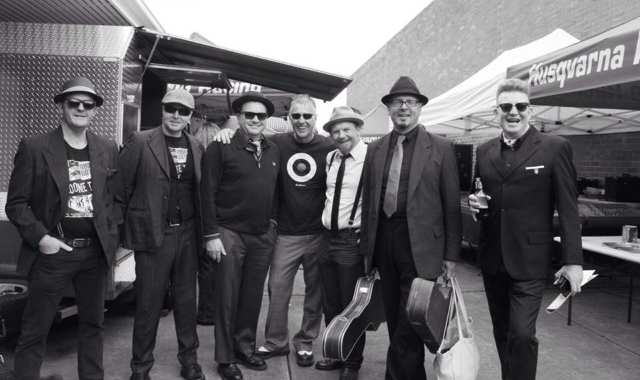In 2007, the Sydney-based Whale, and Adelaide-native Cook started sharing ideas via the Internet. Fast forward to the present day and Collarbones have just released their third album, Return.The pair’s creative bond remains the core impetus for their joint activities.
“It’s something that comes quite natural,” Whale says. “In life, it’s about finding chemistry with people, and Travis and I have a really good chemistry. It’s just granted that we’ll work on some music.”
After joining forces seven years ago, Whale and Cook knocked out a bunch of demos, singles and mixtapes, which led to 2011’s debut LP, Iconography.Defying any limitations imposed by their long-distance working arrangement, 2012 saw the release of Collarbones’ highly lauded second album, Die Young. Return’s construction process lasted longer than either of its predecessors. As Whale explains, they weren’t going to make another record simply for the sake of it.
“We’ve gotten to a point with Collarbones where we have to have a reason for doing it. It’s three albums in and there has to be a good reason for making a song. You can’t just be like, ‘Oh, I was just playing with this and it sounds kind of OK.’ We have to have an idea and it’s got to be realised well. That requires time.”
We’re forever hearing hoo-ha about the death of the album. The commercial demand for long-playing releases has certainly dropped, but in reality, there’s no lack of artists making quality records. Similarly, listening habits might’ve changed, but the notion that albums are now utterly neglected is something of a fiction. Still, Whale can’t help but rue how the tides have turned in recent years.
“The way that people interact with music these days, it’s kind of like the album’s almost an afterthought,” he says. “That annoys me a bit because I really love the album format, I think it’s really great and I wish it had more value these days.
“I’m really happy when things happen like when Beyoncé put out her album and it was only available as an entire package, for about a week,” he adds. “These people are in positions of power, where they have huge hoards of fans who want as much as they can get. It kind of speaks to me that it’s still important to people that they can sit down and listen to something for an hour.”
It’s plain to see Collarbones are romantic believers in the album format, which is something distinct from just a collection of songs. Thus, with Return they set out to craft an entire body of work.
“We wanted it to be a journey and we wanted it to be something that sustained itself over the 40-something minutes and felt complete,” Whale says. “It’s an interesting process. Towards the end, it gets really fun because you’re like, ‘All right we’ve got six or seven [songs] that we really like, now we can work a through-line in it and make some songs that fit nicely in there.’ Then it feels like you’re really writing an album, rather than just working on tracks. So songs like Flush and the intro song [100 Nights] were ones we did really late in the process to give it real dimension.”
The album’s bigger picture mightn’t have become apparent until after an extensive writing period, but Return’s lyrical framework was established early on.
“The first song that I wrote for the album – which we never released actually – I wrote immediately after being dumped by a guy,” Whale explains. “It sort of follows that the entire album was about that period of time and on that theme. On that level it was prescribed from the beginning.”
Despite what the duo’s release history might suggest, Whale and Cook have remained geographically separate since Collarbones’ inception. The interstate divide has clearly never been a productivity killer. More to the point, Whale believes it’s an optimal working arrangement.
“We’ve been doing [it this way] longer than most bands in the scene have been doing it in person,” he says. “It’s as normal to us as getting up in the morning and eating breakfast. With Collarbones, it’s great because it means that Travis or I can really hone in on a bunch of stuff when we’re working on it [individually] and not have to um and ah.”
Similar to previous Collarbones releases, Return comprises an off-centre and very-21st century take on R&B and pop music. Songwriters have to be wary of the influence passing fads have on their work, but it’s not always easy to detect when something that’s grabbing your interest is destined for fleeting existence. Collarbones’ unique songwriting arrangement is helpful in this regard.
“We both have to develop a collective sense for what will work,” says Whale. “That collective sense is even more valuable than actual musical input.
“With this album, we took a while and a bunch of the songs are fairly old, but they’re the ones that six-to-12 months down the track we felt like they still held resonance and relevance to us.”
BY AUGUSTUS WELBY







